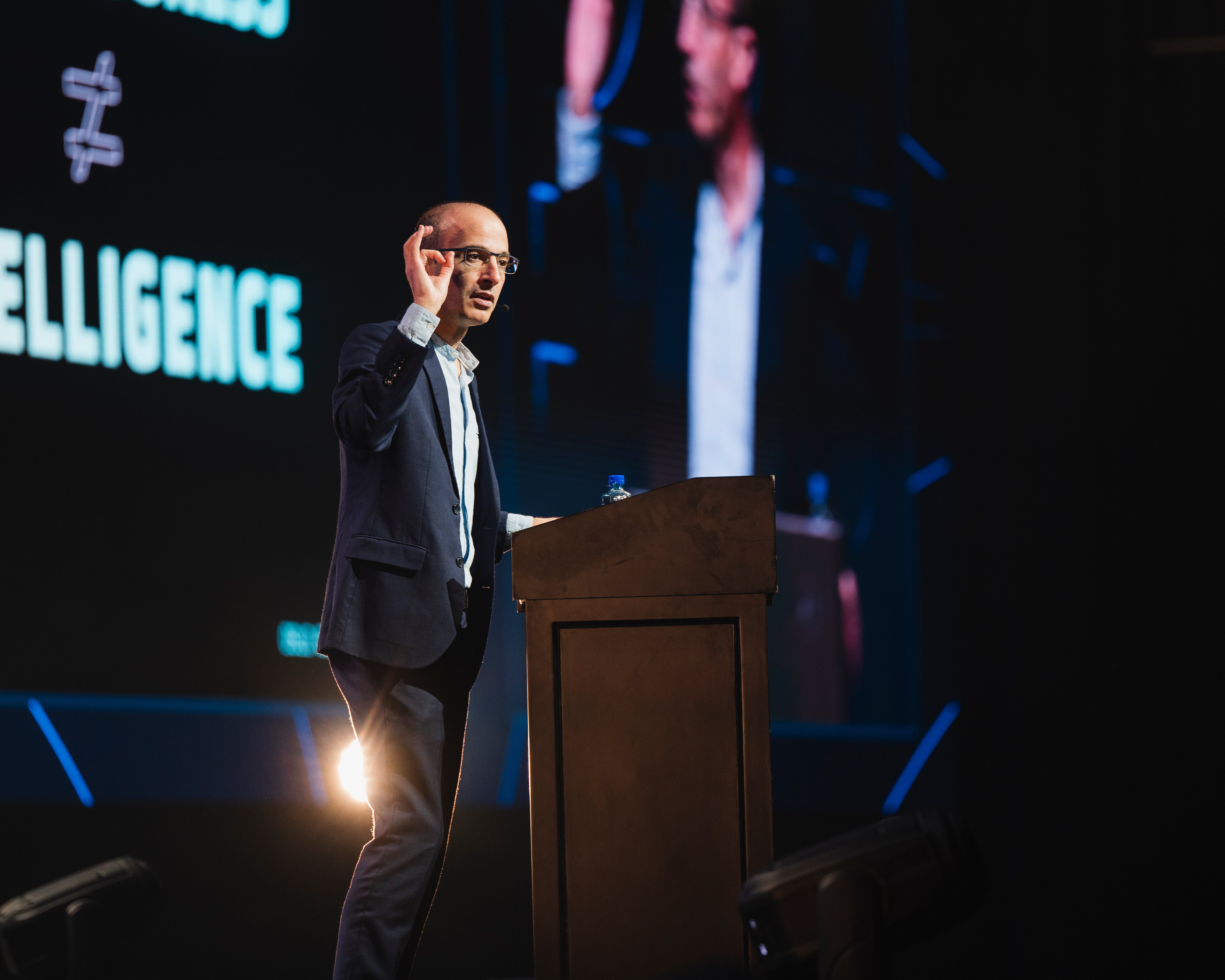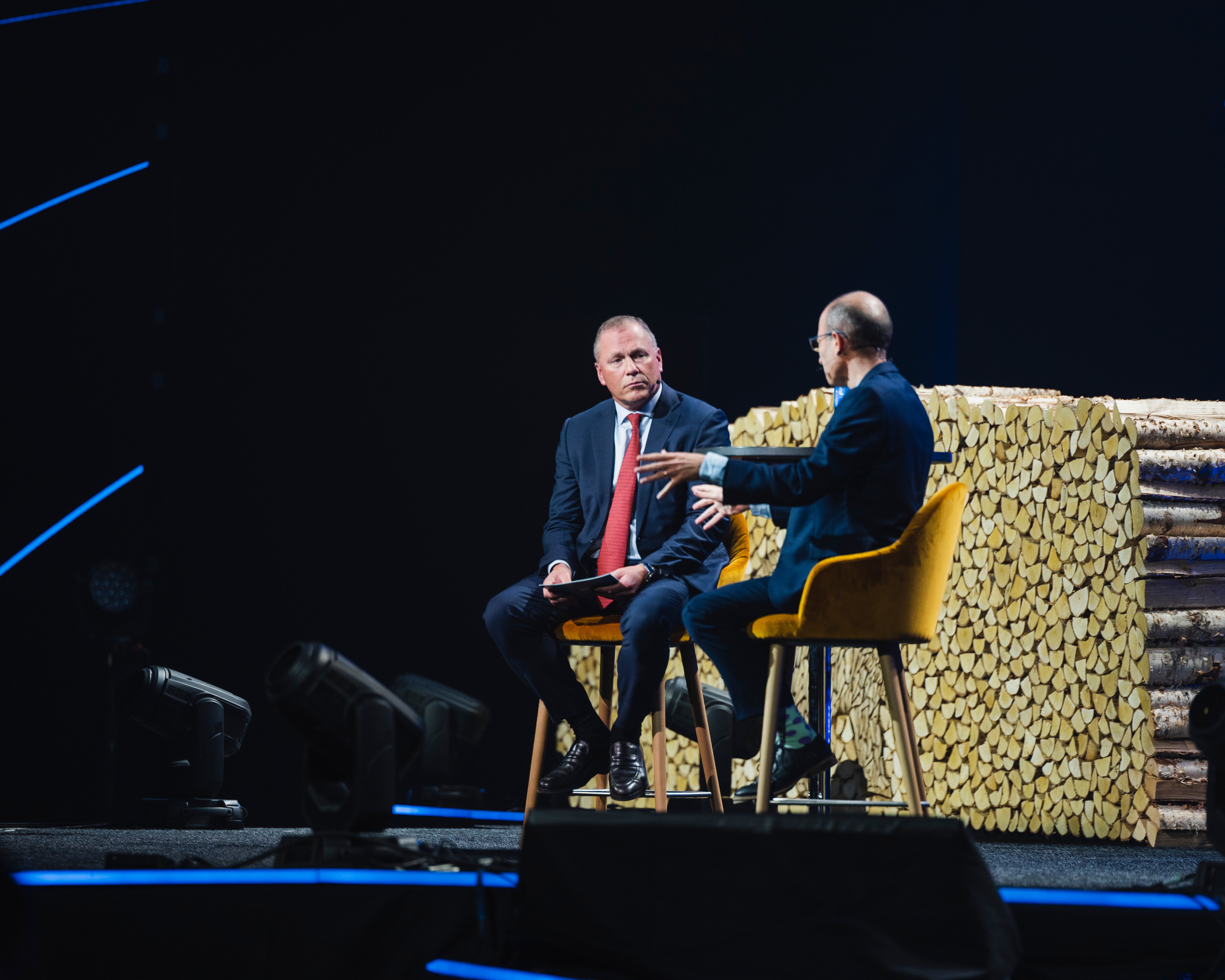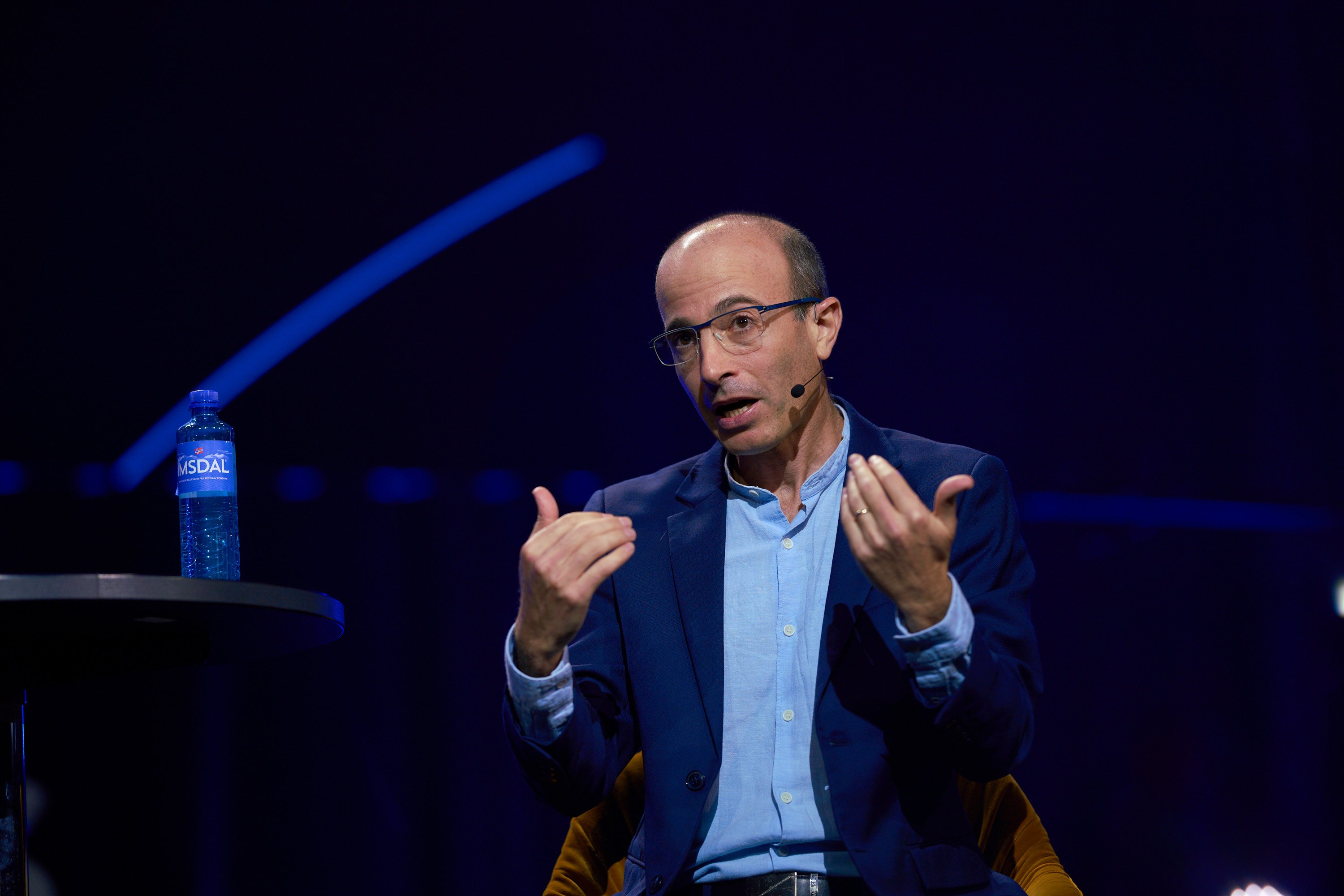At Oslo Business Forum, Yuval Noah Harari shed light on the future of work, sharing insights to help leaders overcome uncertainty and adapt to advances in artificial intelligence and automation.
Professor Yuval Noah Harari is the author of international bestsellers “Sapiens: A Brief History of Humankind” and “Homo Deus: A Brief History of Tomorrow,” as well as the “21 Lessons for the 21st Century.” He is a lecturer at the Department of History, the Hebrew University of Jerusalem, and his current research focuses on macro-historical questions.
The future of work
The global pandemic accelerated trends and innovation that business leaders have been speculating on for years. Despite the rapid pace at which we’ve been forced to adapt, the future feels more uncertain than ever.
This uncertainty has been compounded by emerging technologies and advancements in artificial intelligence (AI) that create big questions about the future of work. Will our roles be replaced by robots? When work is automated, which tasks will remain? Where will humans be needed—and where will we not?
As a scholar and author, Yuval has been eager to explore how our jobs, our skills, and the job market will change ten, twenty, and thirty years from now. He believes that as companies consider these questions for the future, they can take a cue from the past.

No margin for error
Yuval reminded the audience that the uncertainty we feel today is not unfamiliar, noting that we’ve feared automation since the beginning of the industrial revolution 200 years ago. “Whenever automation made old jobs disappear, new jobs always emerged to replace them,” said Yuval. “This is likely to happen in the future, too, but we shouldn’t be complacent.”
Whenever automation made old jobs disappear, new jobs always emerged to replace them. This is likely to happen in the future, too, but we shouldn’t be complacent.
The only thing we know for certain about the future of work is that it will be completely different from today. Many jobs and tasks will be automated, creating questions about how society will shift and humans will adapt. Yuval perceives the process of adaptation will be our greatest challenge and encourages leaders to think about how to adapt widely and compassionately.
“We don’t have any margin for error,” said Yuval. “We can’t allow any more failed experiments because if we fail this time, the result could be the disappearance of our species.”
The key question leaders must ask themselves today is what will humans actually be doing in 2050?
Challenging assumptions
In an eye-opening comparison, Yuval pointed out several assumptions we hold about the capabilities of humans versus machines that may be shattered by emerging technology.
The first assumption pertains to the skills we value. Some skills we consider unique human abilities can be automated easily, while skills we look down upon may be more difficult to automate. “We appreciate intellectual skills more than motor and social skills,” he said. “But it’s easier to automate chess playing than dishwashing.”
Tasks based on pattern recognition are exactly what AI is capable of mastering and what computers become better and better at over time. We believe gathering medical data, providing a diagnosis, and recommending treatment require the unique knowledge and skill of a degreed doctor—but the truth is that a computer can easily perform the same functions. It is more difficult, however, to replace the job of a nurse who gives an injection to a crying child.
The second assumption that will be challenged is that creativity is uniquely human. “Computers are already far more creative than human beings, from designing fashion to composing music,” Yuval said. “It boils down to the question, ‘what is creativity?’”
If creativity means recognizing patterns and breaking them, then computers are likely to excel in many fields.
The final belief we hold that may be untrue is that empathy and emotional intelligence can’t be automated. Again, Yuval challenged the audience to define emotional intelligence. If it means correctly identifying human emotions and responding to them, then computers may outperform humans in this regard, too.
We recognize patterns to distinguish and respond to emotions, and the recognition of patterns to formulate a response is what AI excels at. The fact that AI doesn’t have emotions of its own may make computers even more effective at responding to emotions than humans are.
We want people to understand how we feel, but humans often fail at this because we’re too busy with our own emotions. Because computers are not distracted by feelings of their own, we may come to prefer the response of a machine. “What happens when your refrigerator is more attuned to your feelings than your husband is?” asked Yuval.
Inevitably, this leads to the question of computer consciousness.

Intelligence vs. Consciousness
Yuval pointed out that there is no reason to believe that as computers become more intelligent, they will also become conscious. Intelligence is the ability to solve problems, while consciousness is the ability to feel.
Don’t confuse artificial intelligence with consciousness.
In humans, intelligence and consciousness go hand in hand. We solve problems using our feelings. Computers solve problems in a completely different way. Over the past 70 years, there has been immense development in computer intelligence—but zero development in computer consciousness. This may offer insight into the jobs and tasks computers will do better than humans—and conversely, what humans will continue to do better than computers.
In cases where we simply want a solution to a problem, like driving from Point A to Point B, intelligence is enough. But when we’re seeking kinship and trust, we want more than problem-solving. We want a connection with someone who can feel what we’re feeling.
“When we consider the likelihood of various jobs being automated in the next few decades, the key question is what people want from that job,” Yuval said. “Is it just a solution to a problem, or is it establishing a relationship?”

Rethink and reinvent
It’s hard to predict which jobs will be safe and which will not in the future world of work. But it’s easy to predict that we’ll be challenged to adjust to the new job market.
Yuval believes some of the challenges leaders must be prepared to overcome include:
- Financial challenges. How will we support the people who lose their jobs?
- Psychological challenges. How will we help people cope as they face transition?
- Learning challenges. How will people continually train and learn new skills?
The last question is key, as AI hasn’t reached its full potential. As technology continues to advance, jobs will rapidly vanish and change. To keep pace, humans will need to rethink and reinvent themselves again and again.
Yuval asserts that our adaptation will require emotional intelligence—not to compete with artificial intelligence but to cope with change. In a quest to remain relevant, we will need to learn how to “unlearn.”
“The most important skills for surviving and flourishing in the 21st century are not specific skills,” Yuval said. “Instead, the really important skill is how to master new skills again and again throughout your life.” This will require mental flexibility and resilience.
As we recognize that computers have yet to achieve everything AI is capable of, it’s natural for humankind to feel threatened. But just as AI is nowhere near achieving its full potential, neither are we.
Unleashing our untapped potential
Even amid uncertainty about the future of work, Yuval is confident we can rely on one thing: humans are very good at changing and adapting. Throughout history, we’ve observed our vast, untapped potential that has allowed us to navigate dramatic shifts. Leaders today can take inspiration from the past and trust that our best bet for the future is to develop the potential we already have.
Key Points
- Emerging technologies and advancements in artificial intelligence (AI) have created big questions about the future of work.
- Adapting to the emerging job market will become our greatest challenge as more jobs become automated.
- As we consider what will be done by humans versus machines in the future, we must challenge our assumptions about the skills that are uniquely human.
- The most important skills for the future will not be specific skills but rather learning how to master new skills again and again.
- Just as AI is nowhere near achieving its full potential, neither are humans. The best way to prepare for the future of work is to develop our untapped potential.
Questions to Consider
- As you prepare for the future of work, which jobs and tasks do you expect to be automated in your business?
- What assumptions do you hold about the skills that are uniquely human and those that machines can automate?
- As you consider the work of human versus machine, ask yourself what you want from that job: is it a solution to a problem, or is it establishing a relationship?
- Are your teams prepared to adapt by reinventing themselves and learning new skills? What steps can you take as a leader to develop their potential?
.jpg?width=680&name=Sketchnote_DayTwo_Mainstage_YuvalNoahHarari%20copy%20(1).jpg)
Want to be a part of the OBF community? Join Oslo Business Forum 2023: Thriving in Chaos now!.png?width=680&name=CTA_2023%20(2).png)